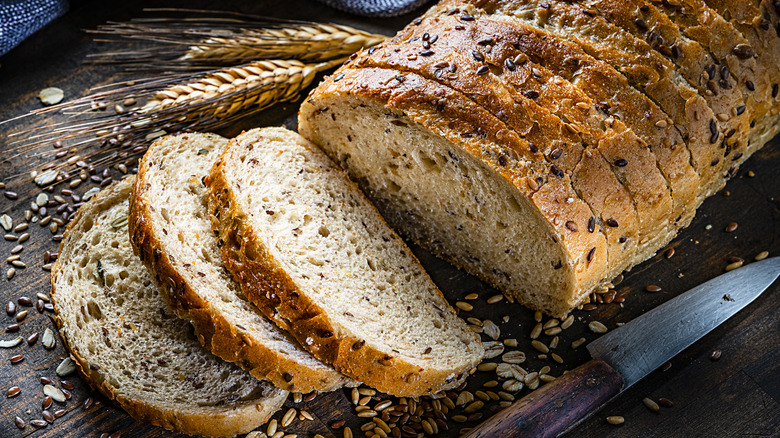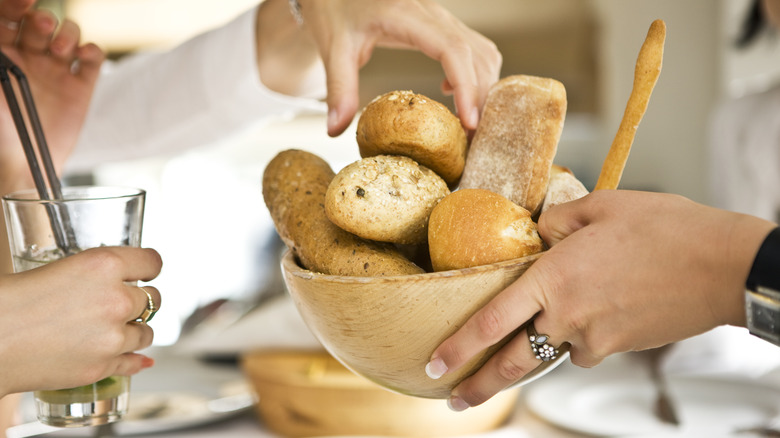What Happens To Your Gut When You Eat Lots Of Bread
Remember bread? You know, that stuff that the low-carb and keto people told you was bad for you? They said to swear off bread so you can lose weight. So you gave up your favorite French baguette smeared with Nutella to eat bacon and low-carb "cookies." Sure, that French baguette ranks way up there on the glycemic index (GI), which means it can send a pretty high spike in your blood sugar. But some types of bread have a low GI because their natural fibers are left intact so it slows down digestion. That fiber is not only good for balancing blood sugar but also good for your gut.
Soluble fiber like apples, oats, and beans feed the good bacteria in your gut, but insoluble fiber found in whole grain breads adds bulk to your stool while keeping you full. However, whole-grain bread and sourdough might be healthier than you think for your gut because they could change the composition of your gut microbiome.
What whole grain and sourdough breads do to your gut
A 2020 systematic review in Recent Patents on Food, Nutrition & Agriculture looked at 35 research studies that investigated how whole grains impact the bacteria in the gut. Most of the studies found that whole grains encourage the growth of bifidobacteria and lactobacilli. Both bifidobacteria and lactobacilli ferment your carbs into short-chain fatty acids that protect your gut's lining, regulate your hormones, and stabilize your blood sugar. Some strains of bifidobacteria support your immune system and fight infection, and some lactobacilli strains can tame inflammation. Whole grains also reduce the harmful Escherichia coli (E. coli) and clostridia bacteria in your gut.
Sourdough might have become a popular bread during the lockdown days of COVID, but you don't have to nix it if you want to improve your gut health. According to a 2019 study in Frontiers in Microbiology, sourdough bread reduced the harmful bacteria in the guts of rats. Sourdough also causes the gut bacteria to produce proteins that render some pathogenic bacteria inactive.
Bread can be a healthy option for your gut
If you think white rice might be healthier than white bread, think again, according to a 2018 article in Nutrients. For a week, people consumed white bread as a side dish and for another week ate white rice on the side. When the people ate bread, they had more of the bifidobacteria and short-chain fatty acids in their gut. They also had more of the glucagon-like peptide 1 (GLP-1) hormone, which slows down gastric emptying and makes you feel full.
As more research in the medical community is looking into how the gut microbiome is associated with the immune system, mental health, and various diseases, a 2023 article in Trends in Food Science & Technology said food technologists are looking into how they can make bread more healthy for the gut. This includes swapping unhealthy refined flours and food additives with fiber and antioxidant-rich whole grains to maintain the diversity of the gut microbiota. Another possibility is adding additional fiber and probiotics to bread that target specific ailments. Innovations in processing bread could also help bread maintain its natural nutritional value.



